Addressing Need – Understanding the impact of Climate Change on Clients and their Communities
Opportunity’s mission is to help people work their way out of poverty. As such, it’s critical that we understand how the needs of the most vulnerable populations are changing. Our microfinance network provides financial services to over 7 million clients, many of whom are disproportionately exposed to climate risk. Climate change represents a risk to the people who receive our financial services, and to our implementing partners who provide those services.
Climate change is likely the greatest single long-term determinant of poverty and vulnerability - the UN has estimated that up to 122m more people worldwide could be living in extreme poverty by 2030 as a result of climate change impacts.
In 2020, Opportunity commenced field research to understand the nature of climate risks affecting our clients and partners, and to determine the role that Microfinance Institutions can play in promoting greater climate resilience among the clients and communities that they serve.
The research at partner MFIs in Rwanda and India will produce guidance that will provide microfinance providers and networks with a methodology for assessing climate risk in their local communities, and a clear understanding of the role financial inclusion can play in building climate resilience.
The SPM Team will present results of this research at the 2nd World Forum on Climate Justice in September 2021 and at COP26 in Glasgow in November.
In 2021, we are also working closely with Opportunity's global Agriculture Finance team to develop a Climate Smart Agriculture strategy for Opportunity's AgFinance program in Africa.
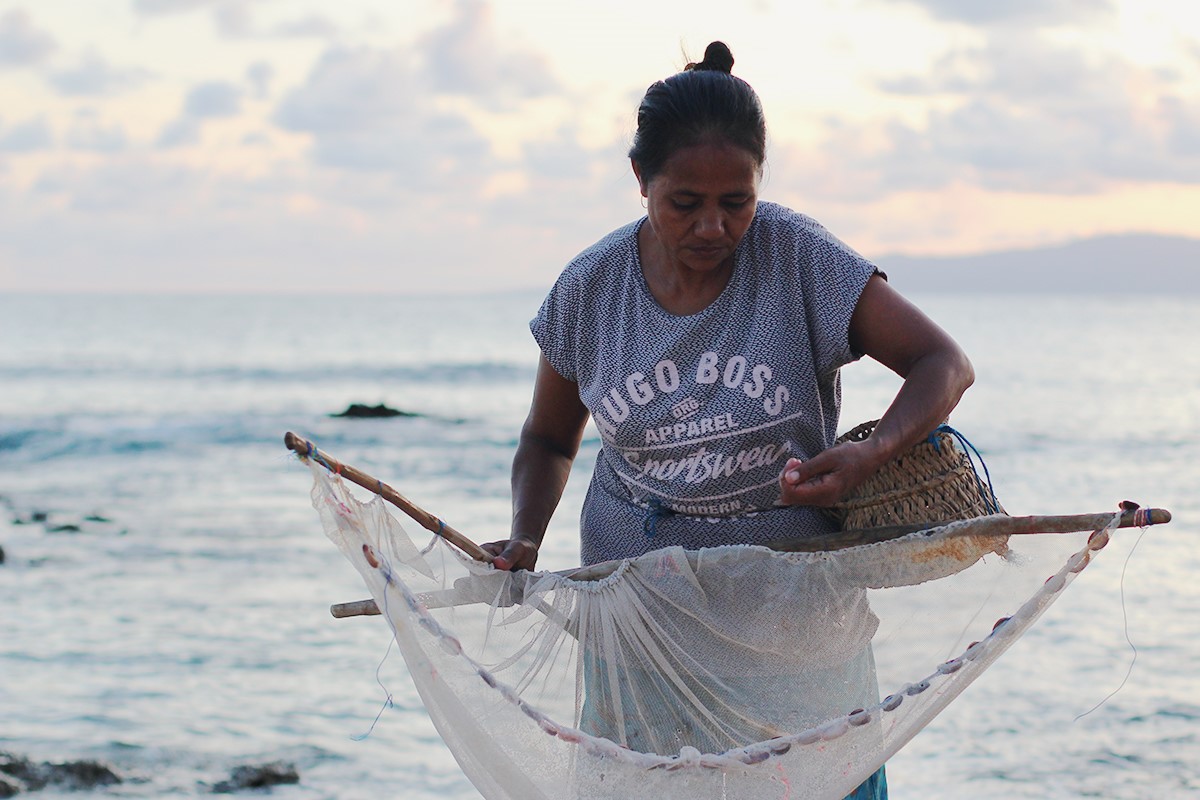
Image: With help from Opportunity, Marce (client from TLM, Indonesia) started a business baking and selling cakes. She also supplements her income by selling fish.
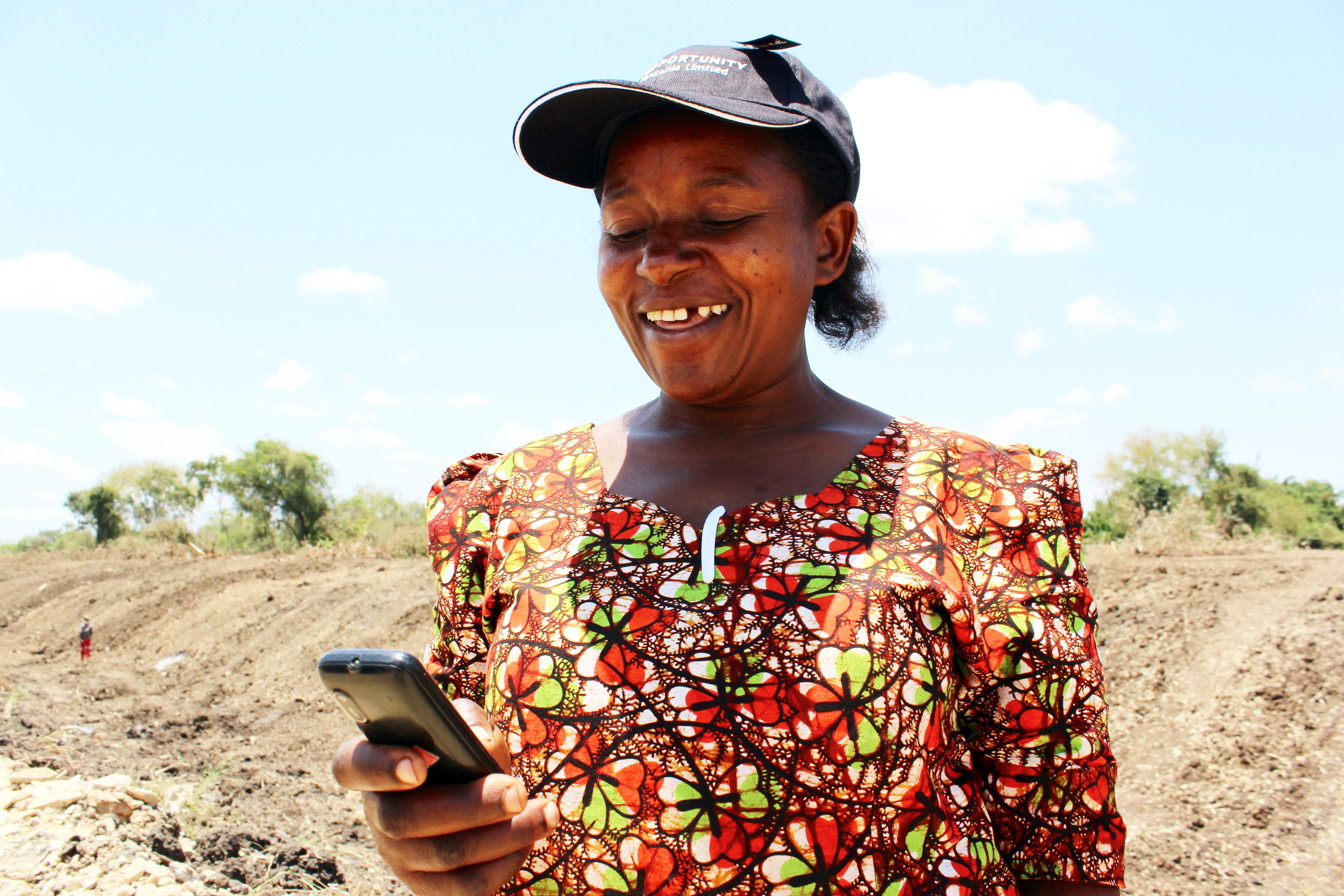
Image: Woman using mobile phone.
Increasing Financial Inclusion with Responsible Digital Services
Reponsible Digital Services
The widespread proliferation of mobile phones throughout developing countries is helping millions of individuals become connected to the wider world, giving them access to an ecosystem of much-needed services that transcend geographic boundaries. An estimated 80% of adults in developing regions have access to a mobile phone, with penetration continuing to rapidly expand. The increasing ubiquity of mobile phones is unlocking unprecedented opportunities–the greatest of which is within digital finance. With a mobile phone, previously unbanked, hard-to-reach groups like rural women, farmers, low-literacy individuals and the elderly are able to conveniently access the financial services they need to improve their livelihoods.
The challenge, however, is that regulations and laws in developing countries have not kept up with the growth of digital credit, opening the door to predatory digital lending practices and opaque or misleading marketing of digital credit products, such as automated “nano” loans. These practices are causing more and more individuals to become over-indebted, as hidden interest rates and repayment terms obscure financial commitments and cause clients to take out more than they can repay. Recognizing this problem, Opportunity is working as fast as possible to expand solutions that ensure digital financial services can be used widely and safely by clients throughout developing regions.
Digital Gender Gap
Another challenge globally is the digital gender gap. Women lag behind men in accessing technologies and using digital services. Studies have shown that women are typically more financially invested in their families and communities than men. Women’s ownership and control of productive assets and their economic participation helps overcome poverty, speeds up development, reduces inequalities and improves children’s overall well-being too. Yet, at some Opportunity’s partners, DFS gender gaps averaging 20-30% have been identified in mobile phone banking usage. These digital gender gaps disempower women, which works against our mission. Women are a significant client segment for Opportunity and our strategy is anchored in a framework that tracks a client’s journey from digital exclusion to one of inclusion, empowerment, and ultimately, freedom from poverty.
Electronic Data Capture
Opportunity is working with partners to adopt common mobile- and tablet-based data collection software, replacing traditional paper and pen. The technology has reduced transaction and survey time, reducing the cost of providing services, and providing data to management with less lag, enabling better decision making. The technology is also improving quality and security of information through biometric data capture (fingerprint, iris).
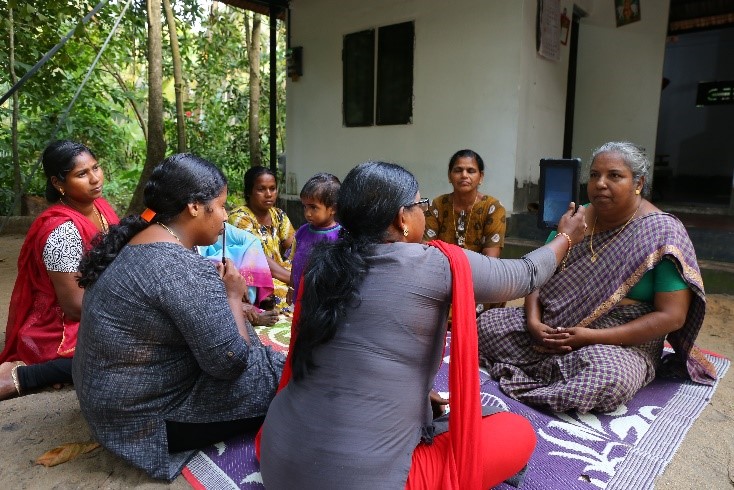
Image: Iris of a microbanking customer (ESAF SFB, India) being taken on a tablet as part of a new digital application procedure.
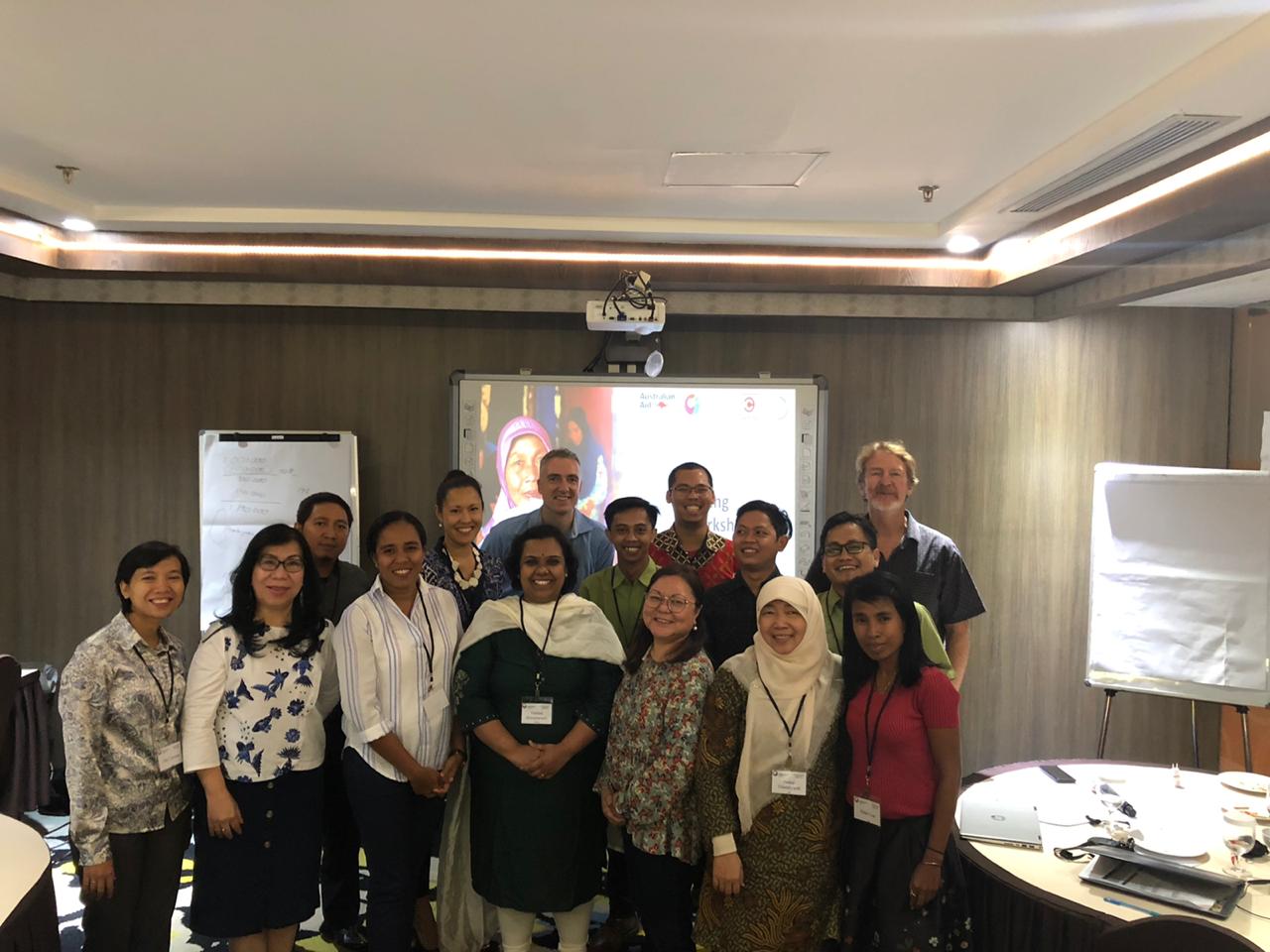
Image: Opportunity Pricing Strategy Workshop attendees, Jakarta November 2019.
Pricing Workshops
Opportunity delivered a two-day Microfinance Pricing Workshop in Jakarta for Opportunity’s 4 Indonesian partners in November 2019. The workshop was part-funded by RIFF-SEA (Responsible Inclusive Finance Facility for South-East Asia). The workshop was very well received and survey responses from attendees suggested it was of significant value to partners in helping them with operational and strategic issues related to pricing. The workshop encouraged partners to increase transparency in presentation of pricing and communication of other terms and conditions to clients.
Opportunity is building on the feedback from this workshop, and developing further modules in the curriculum. Over the next year, we hope to hold similar workshops in Africa.
Centralising Reporting Systems
Opportunity is working with industry stakeholders to provide partners with access to online centralised databases for reporting and benchmarking. Opportunity is supporting partners migrate onto online database systems providing improved functionality and reporting efficiencies, enhanced dashboarding solutions, as well as instant trend analysis and benchmarking to peers. These centralised reporting systems will also contribute to strengthened monitoring and evaluation of partners for Opportunity.
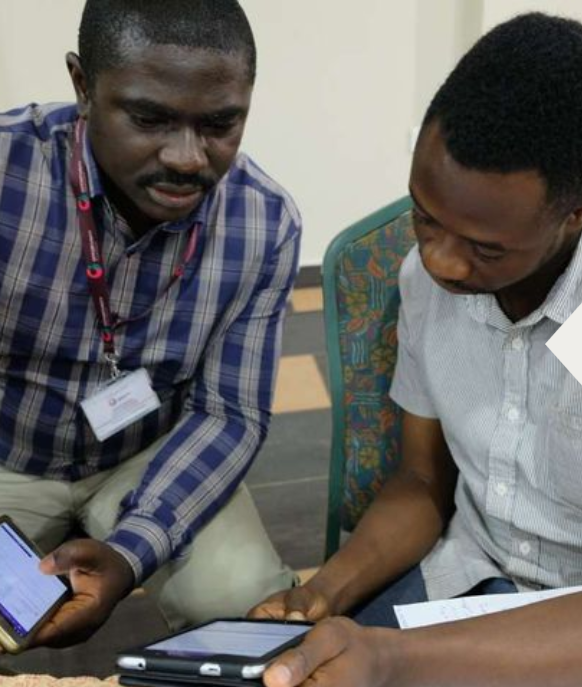
Image: Two male staff using tablets.
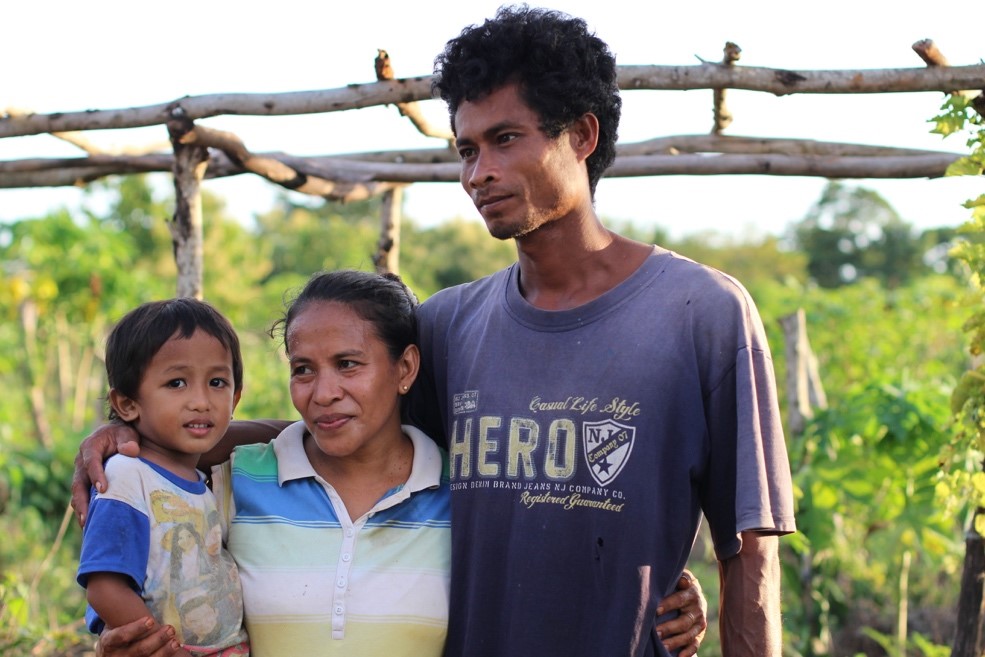
Image: Heni (middle, client from TLM, Indonesia) with her husband and son Yardi at their community garden.
Harnessing Social Data through Technology whilst Ensuring Best Practices in Data Protection
Opportunity continues to work with partners to embed a systematic approach to using data that improves client outcomes. Key focus areas will be promoting a culture of using data to respond to client needs and the use of technology and tools for efficiently collecting and reporting data. This will enable partners to effectively innovate to respond to changing and varying needs across the communities they serve.
Harnessing the power of social data is ultimately the key to understanding the needs of clients and truly transforming their families’ lives. However, collecting personal information on clients can expose clients to risk of harm through breaches of privacy. We are working with experts in data privacy and to promote emerging data protection principles with our partners and will work to ensure that our partners have comprehensive privacy policies that protect clients from harm.